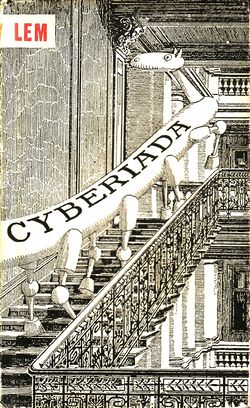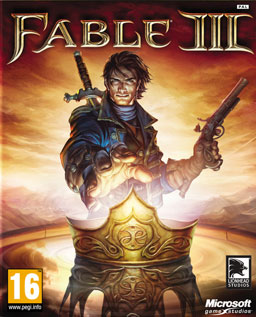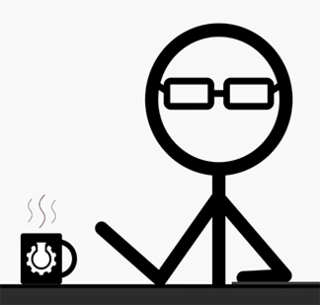
Posthumanism or post-humanism is an idea in continental philosophy and critical theory responding to the presence of anthropocentrism in 21st-century thought. Posthumanization comprises "those processes by which a society comes to include members other than 'natural' biological human beings who, in one way or another, contribute to the structures, dynamics, or meaning of the society."
Transhumanism is a philosophical and intellectual movement that advocates the enhancement of the human condition by developing and making widely available sophisticated technologies that can greatly enhance longevity, cognition, and well-being.

Chinese mythology is mythology that has been passed down in oral form or recorded in literature throughout the area now known as Greater China. Chinese mythology encompasses a diverse array of myths derived from regional and cultural traditions. Populated with engaging narratives featuring extraordinary individuals and beings endowed with magical powers, these stories often unfold in fantastical mythological realms or historical epochs. Similar to numerous other mythologies, Chinese mythology has historically been regarded, at least partially, as a factual record of the past.
Life extension is the concept of extending the human lifespan, either modestly through improvements in medicine or dramatically by increasing the maximum lifespan beyond its generally-settled limit of 125 years. Several researchers in the area, along with "life extensionists", "immortalists", or "longevists", postulate that future breakthroughs in tissue rejuvenation, stem cells, regenerative medicine, molecular repair, gene therapy, pharmaceuticals, and organ replacement will eventually enable humans to have indefinite lifespans through complete rejuvenation to a healthy youthful condition (agerasia). The ethical ramifications, if life extension becomes a possibility, are debated by bioethicists.

A tyrant, in the modern English usage of the word, is an absolute ruler who is unrestrained by law, or one who has usurped a legitimate ruler's sovereignty. Often portrayed as cruel, tyrants may defend their positions by resorting to repressive means. The original Greek term meant an absolute sovereign who came to power without constitutional right, yet the word had a neutral connotation during the Archaic and early Classical periods. However, Greek philosopher Plato saw tyrannos as a negative word, and on account of the decisive influence of philosophy on politics,
Plato deemed tyranny the "fourth and worst disorder of a state." Tyrants lack "the very faculty that is the instrument of judgment"—reason. The tyrannical man is enslaved because the best part of him (reason) is enslaved, and likewise, the tyrannical state is enslaved, because it too lacks reason and order.
The term superhuman refers to humans, human-like beings or beings with qualities and abilities that exceed those naturally found in humans. These qualities may be acquired through natural ability, self-actualization or technological aids. The related concept of a super race refers to an entire category of beings with the same or varying superhuman characteristics, created from present-day human beings by deploying various means such as eugenics, euthenics, genetic engineering, nanotechnology, and/or brain–computer interfacing to accelerate the process of human evolution.

David Pearce is a British transhumanist philosopher. He is the co-founder of the World Transhumanist Association, currently rebranded and incorporated as Humanity+. Pearce approaches ethical issues from a lexical negative utilitarian perspective.

Nick Bostrom is a philosopher at the University of Oxford known for his work on existential risk, the anthropic principle, human enhancement ethics, whole brain emulation, superintelligence risks, and the reversal test. He is the founding director of the Future of Humanity Institute at Oxford University.

The Cyberiad, sometimes subtitled Fables for the Cybernetic Age, is a series of humorous science fiction short stories by Polish writer Stanisław Lem. The collected set of stories was originally published in 1965, with an English translation by Michael Kandel first appearing in 1974.
The Institute for Ethics and Emerging Technologies (IEET) is a technoprogressive think tank that seeks to "promote ideas about how technological progress can increase freedom, happiness, and human flourishing in democratic societies." It was incorporated in the United States in 2004, as a non-profit 501(c)(3) organization, by philosopher Nick Bostrom and bioethicist James Hughes.

Human extinction is the hypothetical end of the human species, either by population decline due to extraneous natural causes, such as an asteroid impact or large-scale volcanism, or via anthropogenic destruction (self-extinction), for example by sub-replacement fertility.

Ao Guang is the Dragon King of the East Sea in Chinese folklore. He featured prominently in different works including Fengshen Yanyi and Journey to the West.
Pro-aging trance, also known as pro-aging edifice, is a term coined by British author and biomedical gerontologist Aubrey de Grey to describe the broadly positive and fatalistic attitude toward aging in society.

Daniel John Callahan was an American philosopher who played a leading role in developing the field of biomedical ethics as co-founder of The Hastings Center, the world's first bioethics research institute. He served as the Director of The Hastings Center from 1969 to 1983, president from 1984 to 1996, and president emeritus from 1996 to 2019. He was the author or editor of 47 books.

Fable III is a 2010 action role-playing open world video game, developed by Lionhead Studios and published by Microsoft Game Studios for the Xbox 360 and Microsoft Windows. The third game in the Fable series, the story focuses on the player character's struggle to overthrow the King of Albion, the player character's brother, by forming alliances and building support for a revolution. After a successful revolt, the player becomes the monarch and is tasked with attempting to defend Albion from a great evil. The game includes voice acting by Ben Kingsley (Sabine), Stephen Fry (Reaver), Simon Pegg, Naomie Harris (Page), Michael Fassbender (Logan), Zoë Wanamaker (Theresa), Bernard Hill, Nicholas Hoult (Elliot), John Cleese (Jasper), Jonathan Ross, Adjoa Andoh (Kalin), Kellie Bright, and Louis Tamone.
In futurology, a singleton is a hypothetical world order in which there is a single decision-making agency at the highest level, capable of exerting effective control over its domain, and permanently preventing both internal and external threats to its supremacy. The term was first defined by Nick Bostrom.

CGP Grey is an American educational YouTuber, podcaster, live streamer, and former teacher based in the United Kingdom who creates explanatory videos on subjects including politics, geography, economics, sociology, history, philosophy, and culture. In addition to video production, he is known for creating and hosting the podcasts Hello Internet with Brady Haran and Cortex with Myke Hurley.
Bioconservatism is a philosophical and ethical stance that emphasizes caution and restraint in the use of biotechnologies, particularly those involving genetic manipulation and human enhancement. The term "bioconservatism" is a portmanteau of the words biology and conservatism.
The societal effects of negligible senescence considers a scenario where negligible senescence is achieved on a societal wide level in humans. There is much controversy about the realistic timeline of such a scenario. The predictions vary in time starting from 2037 till later than the 21st century. The effects of negligible senescence has a profound impact on economy, climate, demographics and impacts social structures. The baseline scenario ceteris paribus of negligible senescence is more population growth while a larger healthier labor force would spur economic growth.











